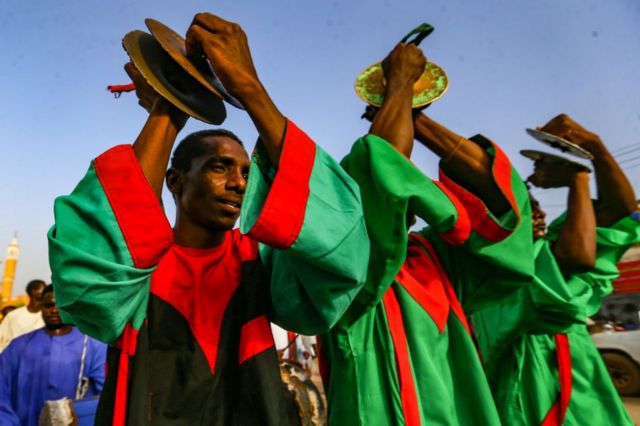Learning about a destination’s local traditions can be one of the most gratifying and fascinating experiences to have while travelling. And though many customs are embraced and loved by visitors, many still need protection.
70 countries submitted nominations for consideration by the Unesco committee this year, and more than 50 were accepted to the organisation’s Intangible Cultural Heritage list. Of those, six are in need of urgent safeguarding, including the practice of olive cultivation in Türkiye and Mek Mulung, a traditional Malaysian performance that involves dancing, singing and acting.
Others, such as opera singing in Italy and bolero in Cuba and Mexico were added to the Representative List. Safeguarding practices of the Sea Turtle Festival in Panama were commended, and traditional leadership and local communities in Zimbabwe were earmarked for international assistance.
Here is the full list of new additions to the Unesco Intangible Cultural Heritage list
- Traditional Syrian glassblowing, Syrian Arab Republic
- Traditional olive cultivation, Türkiye
- Xeedho, Djibouti
- Mek Mulung, Malaysia
- Ingoma Ya Mapiko, Mozambique
- Ancestral and traditional techniques for the elaboration of the ‘Poncho Para’i de 60 Listas’, Paraguay
- Rotterdam Summer Carnival, Netherlands
- Production of the atlas and adras fabrics, Tajikistan
- Sango Festival, Oyo, Nigeria
- Dabkeh, Palestine
- Aklan piña handloom weaving, Philippines
- Polonaise, Poland
- Procession and celebrations of Prophet Mohammed’s birthday, Sudan
- Alpine pasture season, Switzerland
- Art of Akhal-Teke horse breeding and decoration, Turkmenistan
- Harees dish, Oman, Saudi Arabia and United Arab Emirates
- Transhumance, Albania, Andorra, Austria, Croatia, France, Greece, Italy, Luxembourg, Romania and Spain
- Sona, Angola
- Tradition of blacksmithing in Gyumri, Armenia
- Traditional irrigation, Austria, Belgium, Germany, Italy, Luxembourg, Netherlands, Switzerland
- Junkanoo, Bahamas
- Bolero, Cuba and Mexico
- Shuwalid festival, Ethiopia
- Traditional craft skills and arts of Al-Mudhif building, Iraq
- Arts, skills and practices associated with engraving on metals (gold, silver and copper), Algeria, Egypt, Iraq, Mauritania, Morocco, Palestine, Saudi Arabia, Sudan, Tunisia and Yemen
- Al-Man’ouché, Lebanon
- Sodai straw garden making, Lithuania
- Hiragasy, Madagascar
- Maltese Village Festa, Malta
- Mahadra, Mauritania
- Songkran, Thailand
- Art of illumination: Təzhib/Tazhib/Zarhalkori/Tezhip/Naqqoshlik, Azerbaijan, Iran, Tajikistan, Türkiye, Uzbekistan
- Iftar/Eftari/Iftar/Iftor and its socio-cultural traditions, Azerbaijan, Iran (Islamic Republic of), Türkiye, Uzbekistan
- Craftsmanship and performing art of balaban/mey, Azerbaijan, Türkiye
- Craftsmanship of mother of pearl inlay, Azerbaijan, Türkiye
- Rickshaws and rickshaw painting in Dhaka, Bangladesh
- Nguon, Cameroon
- Traditional skills of loincloth weaving, Côte d’Ivoire
- Garba of Gujarat, India
- Jamu wellness culture, Indonesia
- Sadeh/Sada celebration, Iran and Tajikistan
- Elechek, Kyrgyz female headwear: traditional knowledge and rituals, Kyrgyzstan
- Traditional craft of Naga motif weaving in Lao communities, Lao People’s Democratic Republic
- Traditional wooden boatbuilding in Carriacou and Petite Martinique, Grenada
- Handmade glass production, Czech Republic, Finland, France, Germany, Hungary, Spain
- The practice of opera singing, Italy
- Practices and meanings associated with the preparation and consumption of ceviche, Peru
- Ceramic arts, Uzbekistan
- Ch’utillos, Bolivia
- Malhun, Morocco
- Midwifery, Colombia, Cyprus, Germany, Kyrgyzstan, Luxembourg, Nigeria, Slovenia and Togo
- Safeguarding foster care heritage in the merciful city of Geel, Belgium
- Nyckelharpa network, Sweden
- ICH safeguarding practices program for the cultural and ecologic Sea Turtle Festival of Armila, Panama
- Program for the safeguarding of the Bandos and Parrandas of the Holy Innocents of Caucagua, Venezuela
- Traditional leadership and local communities, Zimbabwe
You can read more about each of these vital traditional practices on the Unesco website here.


